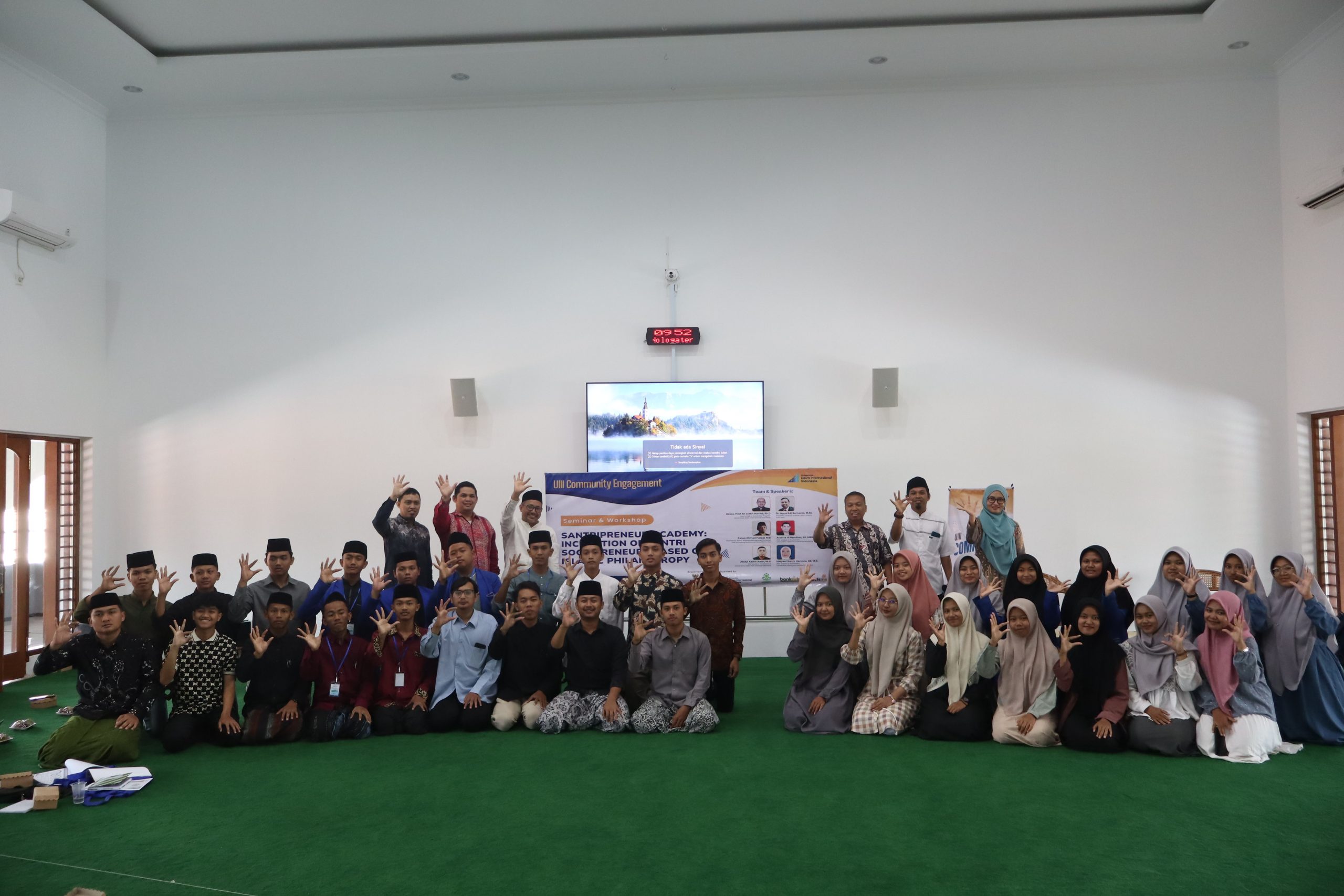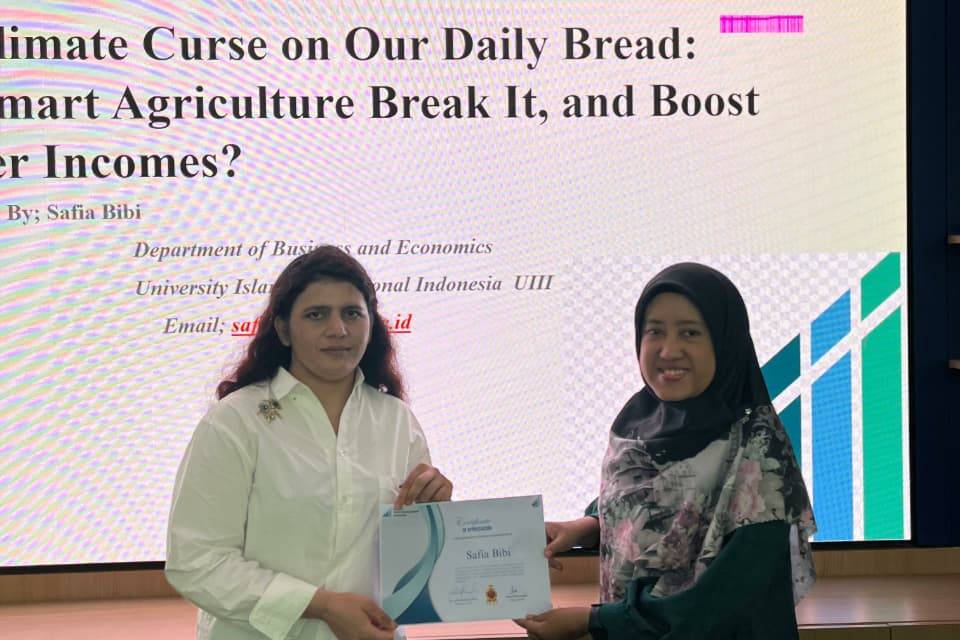Contributor: Denisha Albania Prajoko – MA in Economics Student
Depok, October 4, 2025 – The Faculty of Economics and Business, Universitas Islam Internasional Indonesia (UIII), through its community engagement program, successfully held a comprehensive training program under the theme “Strengthening Researchers’ Competence in Applying Quantitative and Qualitative Method for Islamic Economic and Finance.”
The program was initiated and led by Rininta Nurrachmi,Ph.D lecturer at FEB UIII, with the support of two postgraduate students of Master of Finance in Sustainable Finance, Muhammad Yusuf Fakhri (M.Fin, UIII 2024) and Nurshifa Fathia (M.Fin, UIII 2024), as part of their commitment to advancing academic and professional capacities in Islamic economics and finance research.
The training, conducted on Saturday, October 4, 2025, was designed to enhance participants’ technical skills in three specialized areas: Autoregressive Distributed Lag (ARDL) modeling, Structural Equation Modeling – Partial Least Square (SEM-PLS), and Systematic Literature Review (SLR) & VOSviewer for bibliometric and research mapping analysis. To ensure maximum learning outcomes, participants were divided into three separate classes, each focusing on one of the methods.



The session was facilitated by three trainers:
- Rininta Nurrachmi, Ph.D, who delivered in-depth training on ARDL methodology as an econometric tool for analyzing long-run and short-run relationship.
- Muhammad Yusuf Fakhri, S.Akun. who guided participants in using Systematic Literature Review (SLR) & VOSviewer to visualize bibliometric data and strengthen research mapping in Islamic economics and finance.
- Nurshifa Vathia, S.E. who provided hands-on practice in SEM-PLS applications, enabling participants to understand complex relationships between variables in empirical research or survey research.
The program was highly interactive, combining theoretical insights with practical exercises to equip participants with applicable research skills. By the end of the training, participants had acquired a more comprehensive understanding of how to apply both quantitative and qualitative research methods effectively in the context of Islamic economics and finance. The output of the program, all participants are committed to write a research paper to be submitted to a journal along with their instructor as their second author.
This initiative reflects UIII’s dedication to fostering academic excellence and building research capacity that contributes to the advancement of Islamic economic and financial studies, both in Indonesia and globally.
Contact:
Community Engagement Program – Faculty of Economics and Business
Universitas Islam Internasional Indonesia (UIII)


